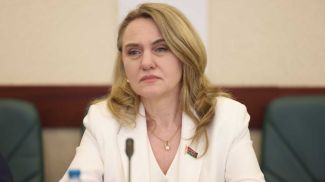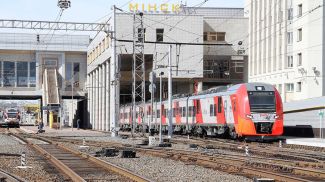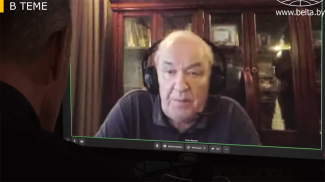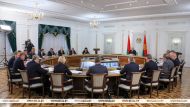MINSK, 7 April (BelTA) - The goal of education is to teach in the best interests of the individual, society and the state, Belarus' Education Minister Igor Karpenko said as he presented the bill “On Amendments to the Education Code of the Republic of Belarus” in the first reading at the meeting of the fifth session of the House of Representatives of the National Assembly of Belarus of the seventh convocation on 7 April, BelTA has learned.
“The legal provisions of the bill are aimed at further improvement of the state education policy, enhancement of the quality of education, clarification of its structure and content, further strengthening of the prestige of Belarusian education at the world level. The document organically fits into mid-term and long-term plans of the country's social and economic development. The new wording of the Education Code, which includes 17 sections, 64 chapters and 297 articles, contains a lot of amendments and additions. They concern both the educational system as a whole and its separate levels,” said Igor Karpenko.
Thus, certain terms have been clarified. New terms have been introduced and their definitions have been provided. Some terms have been changed. “A new definition of education is proposed as education in the interests of the individual, society and the state, aimed at the intellectual, spiritual, moral, creative, physical and professional development of the individual, meeting their educational needs and interests, as well as the totality of acquired knowledge, abilities, skills and competencies of a certain amount and complexity. That is, the purpose of education is not only the versatile development of the student's personality, but also the formation of his competencies, by which we mean the ability to carry out activities in accordance with the received education,” the minister said.
According to him, taking into account the tendencies of further development of the country, the principles on which the state education policy is based are proposed to be supplemented with an inclusive approach to education and compulsory general secondary education. “In the current version of the code, inclusive education was mainly concerned with education and social integration of students with special needs. However, all children without exception should have equal rights, conditions and opportunities in education. Following the principle of inclusion will help taking into account the individual characteristics of each student, regardless of their cultural, economic and social status, as well as differences in physical and mental abilities,” Igor Karpenko emphasized.
The main areas of state education policy include ensuring the right to lifelong learning. “This norm will contribute to the constant development and improvement of human potential,” the minister added.
The document envisages grants for education for foreign nationals. This promotes not only the popularization of Belarusian education in the international arena but also the development of trade and economic cooperation through the training of sought-after specialists for friendly countries. It also ensures an inflow of qualified foreign nationals who quickly adapt to the country's conditions to continue their professional or scientific activities.
In view of migration processes the list of persons who can receive pre-school and general secondary education on an equal basis with underage citizens of Belarus has been expanded. In particular, foreign minors and stateless persons temporarily residing in Belarus, as well as persons who have been granted refugee status, additional protection or asylum in the Republic or who apply for refugee status or asylum in our country, have been added to the list. Norms have also been developed to regulate the issues of sending Belarusian citizens to organizations of foreign states to receive education in fields which are not taught in the country.
An important innovation is the possibility of implementing educational programs in a network form, through the interaction of educational institutions with other organizations using their educational resources and facilities. Development of the distance form of education as an independent form of education is envisaged, thanks to the development of ICT and the high demand for this form both on the international market of educational services and within the country. Previously, it was only a form of distance education.
The bill has been drafted in order to improve the norms of the current Education Code taking into account the ten-year practice of its application, to bring some of its provisions into conformity with the changed legislation of Belarus. An analysis of the national legislation and the education laws of other states, the model educational code for the CIS member-states, appeals of citizens and organizations concerning the subject of its legal regulation was carried out during the work on the draft bill. The document has undergone public discussion.













